Best Inventory Management Software for Small Businesses: A Comprehensive Guide to Boost Efficiency
For a small business looking to improve efficiency, prevent stockouts, and cut down on overstock inventory — inventory management is key. Given the high-paced nature of today’s business world, small businesses can utilize a strong inventory management software which would help them track inventory, manage stock and delivery order in real-time.
In this guide, small business owners will learn the basics of inventory management and discover the most effective inventory management software to make the best decision to provide more efficiency and profitability.
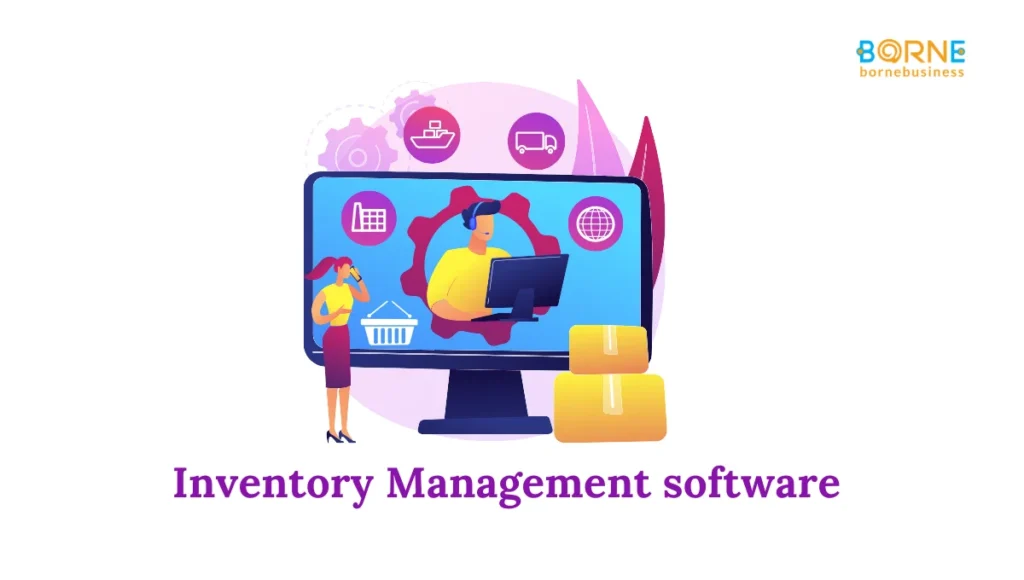
Why Inventory Management is Important for Small Businesses?
If you are in retail, manufacturing, or any business where goods play a central role, inventory management is crucial for the success of small businesses. But small businesses cannot be like big companies when it comes to dealing with inventory, as they have a limited storage space, restricted budgets, and the need to respond daughter within no time.
Inventory management is not merely about keeping an eye on stock; it relates closely to having good control of items at the optimum delivery time and in appropriate quantities to avoid shortages, and leftovers, and matching supply with demand.
An organized inventory system can save businesses from the expensive repercussions of stocking extra goods or under-stocking since it leads to resource stagnation and prevention of cash flow.
By maintaining quantities of how many goods are available, planning for seasonal or cyclical spikes in demand for goods, and improving the process by which those orders are fulfilled and shipped out to customers, inventory management ensures that operations remain efficient and profitable.
The gains of optimized inventory management are high for small businesses as it directly contributes to competitiveness, customer satisfaction, and sustainable growth.
Problems Small Businesses Face Without Inventory Management
Small businesses lack a proper inventory management system, leading to a lot of challenges which they can face in the future that may hinder their growth and also profit. One is stock discrepancies- where the true stock differs from what has been recorded leading to order processing errors and missed sales. Even worse, your customers will suffer if you do not track down your misplaced items taking an eternity to fulfill their orders.
A disorganized system can also lead to businesses overstocking their inventory, resulting in cash being stuck in products that are not selling or under-stocking where they lost out on sales as customers were looking for the product during high demand periods.
In addition, tracking things manually or using older methods is more cumbersome and businesses would find it difficult to keep up with changing demands or seasonal trends. However, as time passes those challenges raise operation expenses and deviate a company’s image owing to the stock-out-delivery or other fulfillment problems.
A good inventory management system will help small businesses bypass this through the simplification of processes, minimizing human errors, and ensuring that stock levels are precise.
Why Is Efficient Inventory Management Beneficial To Business?
A strong inventory management system enables small businesses to make strategic decisions. With the visibility to monitor stock in real-time, know exactly where all items are, analyze product movement and make data-driven decisions.
By having things like automated reordering, businesses can prevent stock shortages and keep their supplies stocked before they run out, thus promoting order fulfillment and customer satisfaction.
Effective inventory management also helps the smooth movement of goods, minimizes or eliminates waste, and guarantees that stocks of perishable or seasonal items are sold within their optimum price periods. Business owners can also improve cash flow by reducing excess stock or investing in more sought-after items. Another benefit of having data insights on inventory reports is that this will help the business to brace itself for the up and down swings in demand, give an opportunity to set realistic sales projections, and help identify ways to eliminate supply chain bottlenecks.
All in all, having efficient inventory management will allow small businesses to keep their customer demand aligned with their inventory and operational costs low, enabling them to make the right strategic decisions for their business expansion.
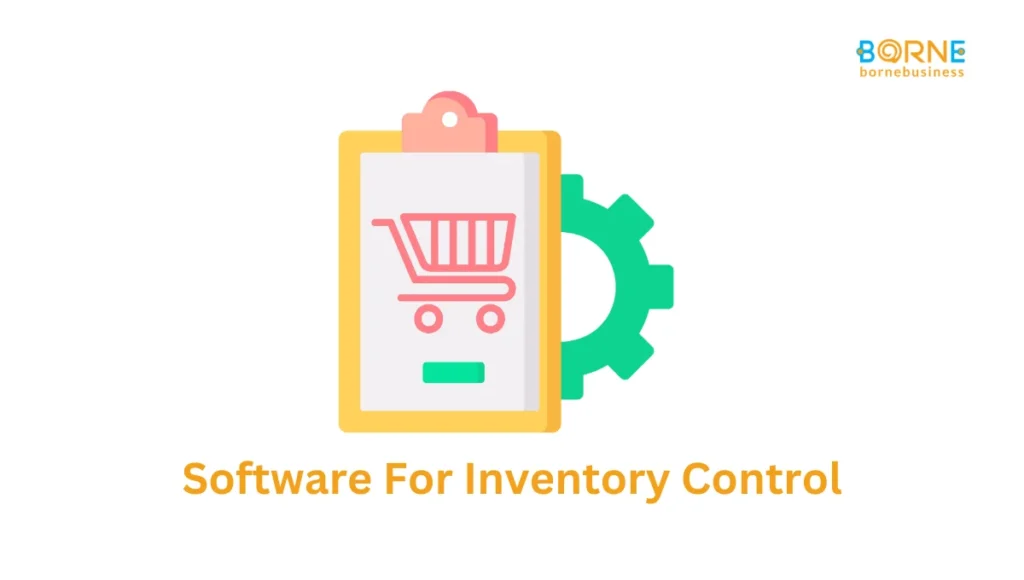
Features to Look for in Software For Inventory Control
Choosing the best inventory management system to schedule for a small business is one of the most important decisions you will make, as it can help simplify processes, cost savings and enhance productivity across your organization. This is why in any inventory software solution you need to look for some essential features.
Why You Should Care About Real-Time Tracking?
Businesses need to keep an up-to-date eye on stock levels in real-time. With this feature you can enable businesses to have a reliable, real-time snapshot of inventory that allows them to assess availability, track stock and know when to make the move.
By using real-time tracking, we can avoid stockouts in order to not miss any sales, but also overstocking will block our cash flow and increase holding costs.
Real-time tracking enables business owners to get a snapshot of their inventory with no fluctuations at any given time, allowing them to forecast better, plan for demand, and control their inventory in such a manner that they can meet customer demand without keeping unnecessary stocks and incurring costs.
What is the Role of Barcode Scanning in Streamlining Inventory Management?
One of the least resource-intensive methods for inventory management is barcode scanning. The ability to scan barcodes for every product or SKU helps businesses quickly and accurately identify inventory items.
We can use barcode scanning to lessen human error, speed up inventory counts, and make it easier to track items as they progress through different steps in the supply chain. This is especially useful for small businesses with fast-moving inventory and having multiple locations as it helps you access the inventory information faster & accelerate stock updates.
Barcode scanning improves both accuracy and efficiency in inventory management, allowing employees to save precious time while improving the overall system functionality.
How Order Management Fits in an Inventory System
Leave a bigger footprint Order management is an essential component of every inventory management system. This helps businesses manage purchase orders, sales orders, and other fulfillment tasks from one central platform for better workflow and less bottleneck.
Good order management ensures that businesses are able to track incoming orders accurately, processing and fulfilling them promptly, leading to a better level of customer satisfaction. Business owners can also use this feature to track supplier relationships, control inventory replenishment seamlessly, and minimize lead time.
An effective order management system enables small businesses to determine optimal stock levels, make informed purchasing decisions, and meet delivery dates — the key chain links of a smooth supply chain.
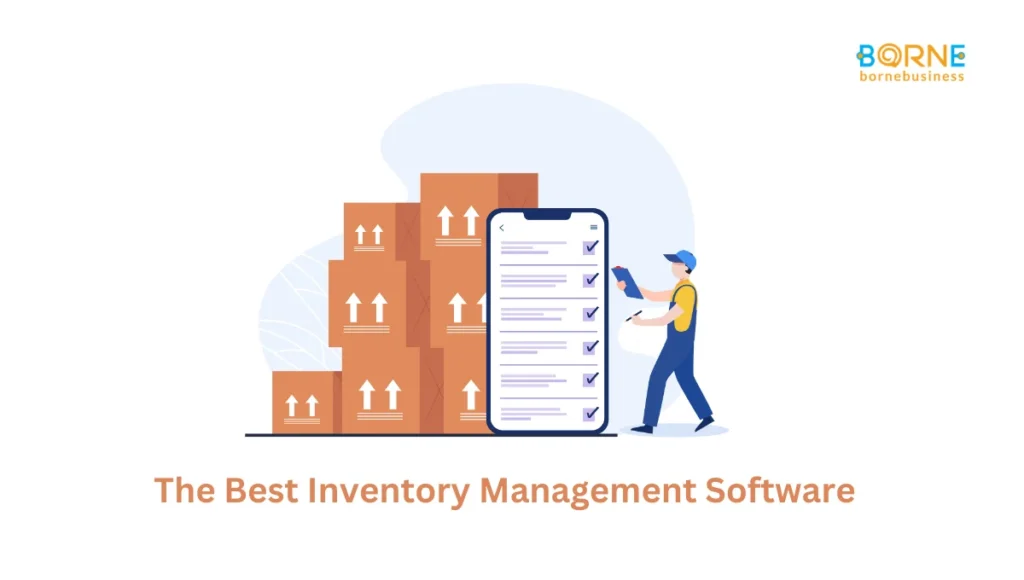
The Best Inventory Management Software for Small Businesses
There are many great choices out there for inventory management software, each with its own stand-out features perfect for small businesses. Take a closer look at some of the most popular options.
Zoho Inventory: An Overview
Zoho Inventory is a cloud-based inventory management software with a focus on small and medium-sized businesses. Its user-friendly interface promotes real-time inventory tracking, and order management, and even supports integration with popular selling platforms.
Benefits of Zoho Inventory for Small Business Features
Zoho Inventory is packed with small-business-friendly features like real-time inventory tracking, barcode scanning, and multi-channel inventory management. With a free version and a 14-day free trial of the software, this is an appealing choice for small businesses and startups looking to explore inventory management options.
More Common Inventory Management Software
Along with Zoho Inventory, some other popular ones are QuickBooks Commerce, Square for Retail, and TradeGecko. Every software solution is tailored for specific business types, providing capabilities such as order management, barcode scanning, and POS system integration.
Selecting the Right Inventory Management Software
There are a number of factors to consider when selecting the best inventory management software for your business.
What Should Small Businesses Consider When Selecting Software?
Small businesses need to choose an inventory management solution with features that align with their specific needs like real-time tracking, order management, and multi-channel integration. Furthermore, the chosen solution must also be scalable and should adapt to per changing inventory needs of the business.
Importance of Cloud-Based Inventory Management for Small Business
With cloud-based inventory management software, small businesses have the flexibility of keeping data accessible from any location and can update it in real-time. It is of utmost importance for business owners who manage inventories in multiple locations or travel and work remotely.
How Much Do You Need to Pay for Your Stock Management Software?
Costs for inventory management software range greatly, too: Some solutions will provide a free version or free trial; others are monthly or annual subscriptions. Small businesses should measure their options by attributes such as features, scalability, and costs to land on the right software.
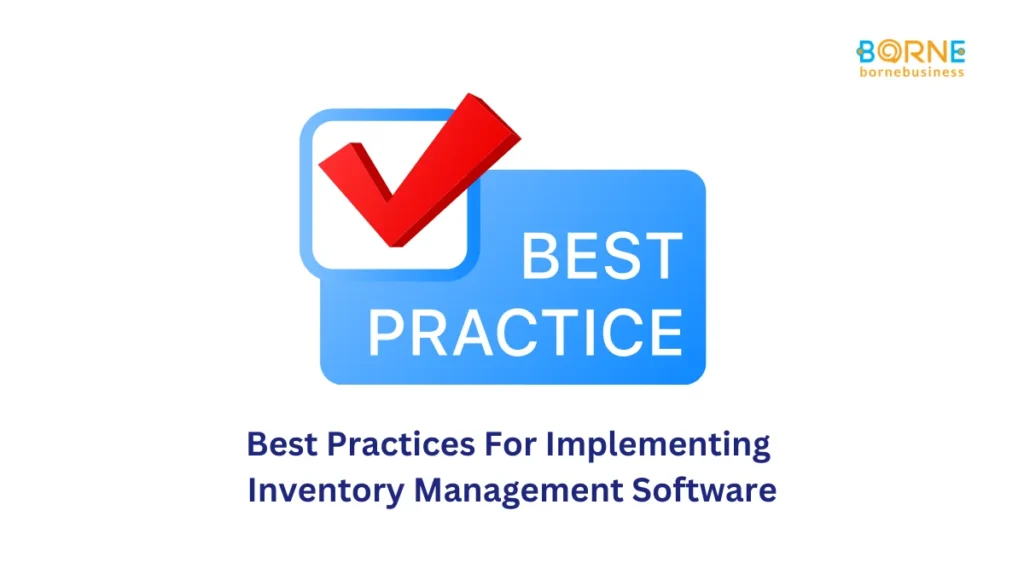
Best Practices For Implementing Inventory Management Software
Sophisticated inventory management software can revolutionize small business operations, but without careful planning, you may experience the effect of a hiccup during this transformative process. To help facilitate effective implementation, consider the following top strategies.
Training Your Team on New Inventory Software
Training is an important part of ensuring your team can use the software. Start with practical training on important functions like barcode scanning, order processing then tracking inventory. You must ensure each employee knows how to do its job inside the new system, familiarity with a platform will easily reduce errors. Also, offering a user guide, video tutorials and a cheat sheet for the top processes can be worth it.
Having a fully trained team will help them adjust faster and be comfortable using the software on the job, which can improve efficiency by leaps and bounds.
How to automate inventory tracking and order management
One of the most significant benefits of inventory management software is automation which can make repetitive processes easier for companies thereby reducing manual tasks.
First up, identify what tasks you can automate- like tracking inventory, replenishing stock, and fulfilling orders. Most of these systems allow you to specify automatic reorder points, so your stock is always replenished without you needing to keep track constantly. Automation of order management ensures accurate and updated inventory records, minimizing stockout and overstocking probabilities.
Business owners can automate processes, control their inventory, and spend time on other activities of the company — all those which leads to higher efficiency in operation.
How to integrate the Inventory software with accounting systems
Integrating with accounting systems can greatly simplify financial tracking and analysis with your inventory management software. Since the inventory solutions mostly support well-known accounting software, you can synchronize data seamlessly.
Its integration enables business owners to accurately track costs incurred on inventory like purchase, return, and stock adjustment from the financial perspective so that they can reflect the same in their books.
Having visibility into an integrated perspective of inventory and finances allows businesses to make informed decisions, monitor cash flow instantly, and keep up with bookkeeping. It also provides the added benefit of less administrative work for your staff, reducing errors from having to double-key information, and overall simplifying reporting and compliance.
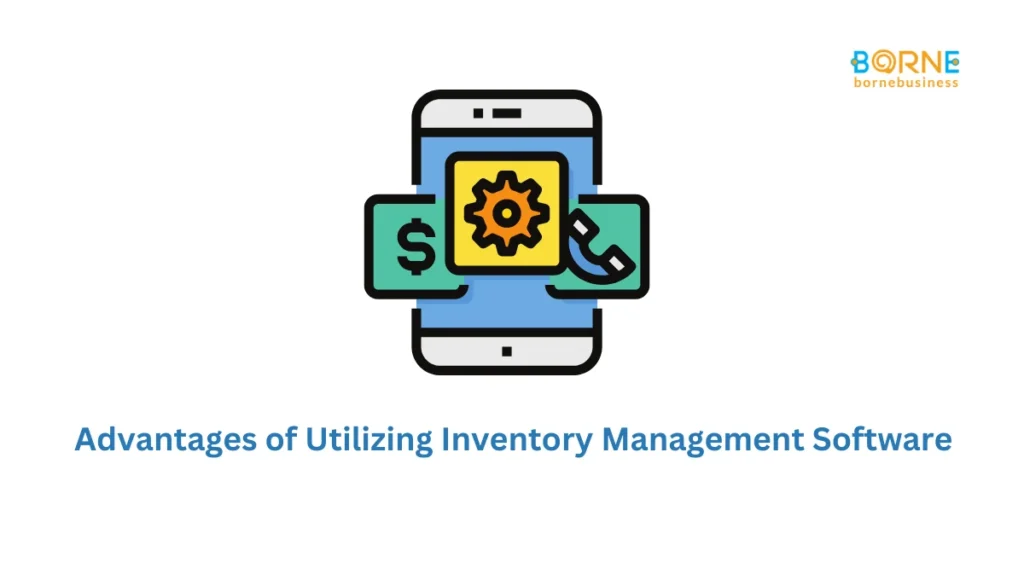
Solutions to Common Challenges in Inventory Management
Although inventory management software helps reduce these numbers of hassles, difficulties can still occur. Below are some common problems and their solutions.
Avoiding Stockouts and Over-Ordering
AIV: Avoiding depletion and excessive ordering necessitates precise planning and forecasting. Your business needs to be stocked with the right amount of items which can be easily done with real-time tracking through Inventory Management Software that alerts the users about low stock levels and helps avoid costly mistakes.
How to Deal With Surplus Stock Effectively
Having too much inventory can make capital unavailable and take up valuable space. Inventory Management Software — Tracking these trends allows a business reduce tendencies to over-order. They can also aid in clearing excess stock through discount sales or bundling options.
Managing Inventory Across Multiple Channels
Tracking stock across different sales channels can be difficult, and multi-channel inventory management is no exception. With inventory management software, the stock level for all sales channels can be synced together to help keep your inventory data true at all times.
Advantages of Utilizing Inventory Management Software for Small Enterprises
However, the benefits of inventory management software extend beyond just staying on top of your stock levels. We asked business leaders to identify how companies can use AI; below are some of the highest-value benefits for small businesses.
How Time-saving Software Can Help Save Your Business Money
With automation and operational procedures, inventory management software can save your business time and reduce labor bills. Proper tracking and order management help businesses reduce waste, and avoid incurring unwanted costs.
How Inventory Software Makes Business Decisions Easier
Real-time data and inventory reports give business owners the information they need to optimize purchase, stock, and sales decisions. With inventory management software, you would have the ability to align your operational activities with your overall business objectives since it offers insights to adjust inventory levels.
Real-Time Inventory Management Can Help Ensure Customer Satisfaction
With real-time inventory management, small businesses can execute orders in no time at all and, as a result, create happy customers and repeat business. This not only allows your customers to place orders when they are supposed to, but a higher level of accurate stock data means fewer canceled orders caused by the lack of stock and therefore a better overall customer experience.
Summary of Key Points
Inventory Management for Small Businesses: Stockout, cost efficiency, and operational improvement are some of the reasons that make inventory management an essential part of any small enterprise.
Key features of the software: It should include real-time tracking, barcode scanning, order management, and multi-channel integration.
Best Inventory Management Software: Zoho Inventory (and More) for Your Small Business
To make sure you find the best fit for your businesses evaluate features, scalability, and costs while choosing the software:
Implementation Making it Work: Train your team, Automate processes, and integrate with accounting systems
Importantly, Avoid emergent issues — use software tools to avoid stockouts, excess inventory, and multi-channel inventory.
Conclusion:
Using the right software for inventory management small businesses can increase efficiency, streamline stock levels, and help you improve customer service.

